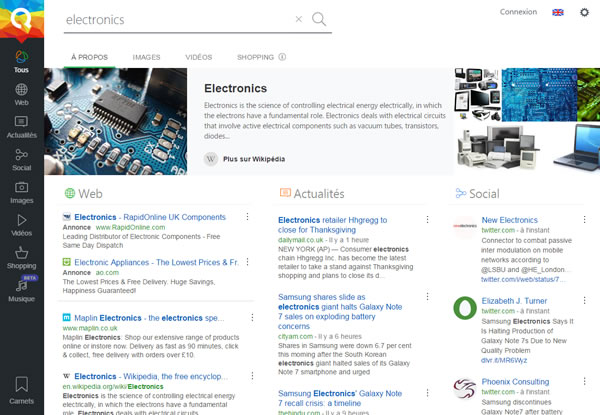The anonymous French search engine competing with Google
With 21 million visitors in May 2016, French search engine Qwant certainly has some work to do to compete with Google’s two trillion per year. However, Qwant’s numbers are rapidly increasing: six months earlier this figure was eight million. It prides itself on providing “a new vision of the web” by respecting the personal details of its user base.
The search engine was launched in February 2013 with two main principles: to neither trace its users nor filter the content of the internet.
In today’s modern world we use the Internet for a huge number of tasks, and many companies have profited from this influx of data by providing targeted advertising. Qwant sets out to be an efficient and profitable browser without storing this personal data, it is instead funded by pay-per-click advertising.
Eric Leandri, cofounder of Qwant, explains that the search engine functions through encrypting the users IP address at each use. Extra random numbers are then added to the encryption so that the original number cannot be reconstructed. As a result, if two users type the same search query they will receive identical results. This means that users can access more search results which may not be accessible on Google because cookies prevent them from showing.
The start-up has received funding from several sources. In June 2014 the German publishing house Axel Springer invested €5-8m in order to acquire a 20% stake in the venture. Then in October 2015 it was announced that the EU Investment Bank will gradually inject €25m into the venture through various loans depending on how the business plan grows. Finally on 4th July 2016, Qwant announced a partnership with Mozilla. The new version of Firefox is optimised for the use of the anonymous search engine. Qwant now hopes to increase its share of the French market from 1.2% to 5-8% by 2018-2019.
This is by no means the first search engine to prioritise anonymity, users may already be aware of DuckDuckGo which recently tripled its own growth. Qwant’s dynamic interface however should be appealing to a wide range of users, it has a certain je ne sais quoi.






